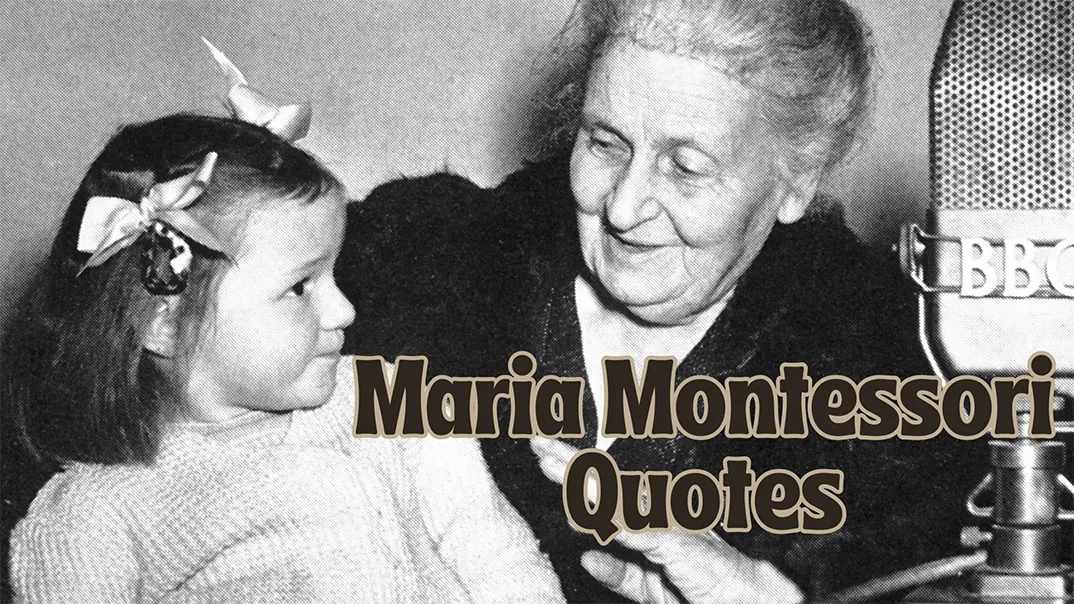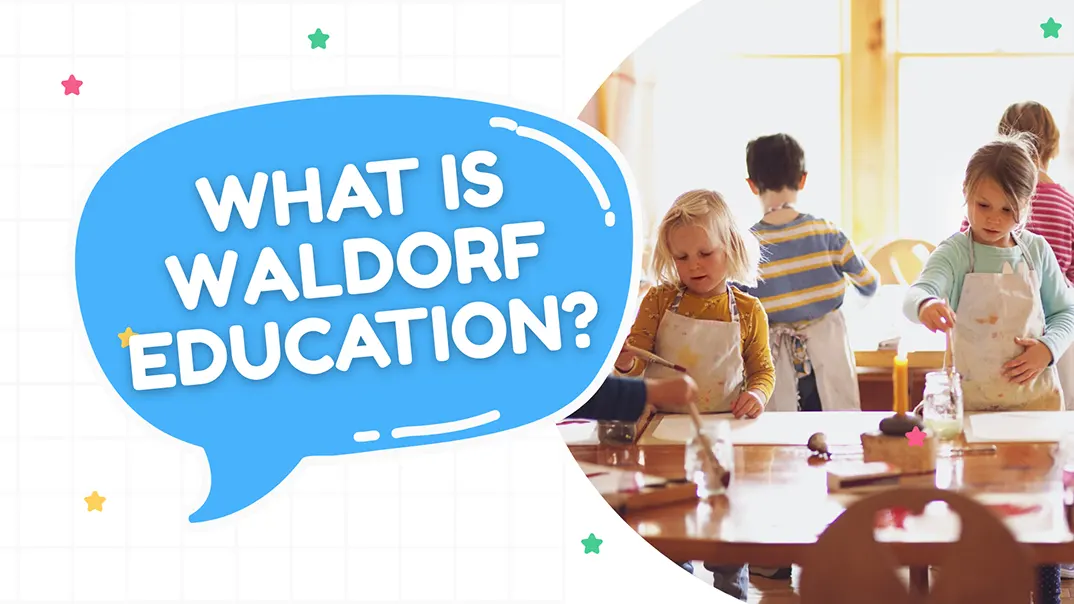Maria Montessori believed that every child is born with extraordinary capabilities waiting to be revealed. Her revolutionary approach to education focuses on unlocking that potential through freedom, choice, and meaningful experience. Her philosophy goes beyond the classroom, offering a vision of human development that is both deeply personal and profoundly social.
Throughout her life, Montessori articulated her beliefs with clarity and wisdom. Maria Montessori’s Quotes continue to inspire educators and parents to see children as capable, creative, and driven learners. These educational quotes by Maria Montessori are not just reflections on teaching; they are guiding principles that encourage us to trust in the power of the child and the transformative nature of education.
The following collection of 50+ inspirational Maria Montessori quotes captures the heart of her philosophy. Together, they offer a roadmap for anyone interested in education as a force for transformation, guiding both children and adults toward a deeper understanding of what it means to grow and to learn.
Maria Montessori Quotes on Children and Learning
Maria Montessori believed that the child is not an empty vessel to be filled with facts but a dynamic, self-directed learner with an extraordinary capacity for growth. In her view, education is not something that happens to children but something they build from within through exploration, discovery, and purposeful activity.
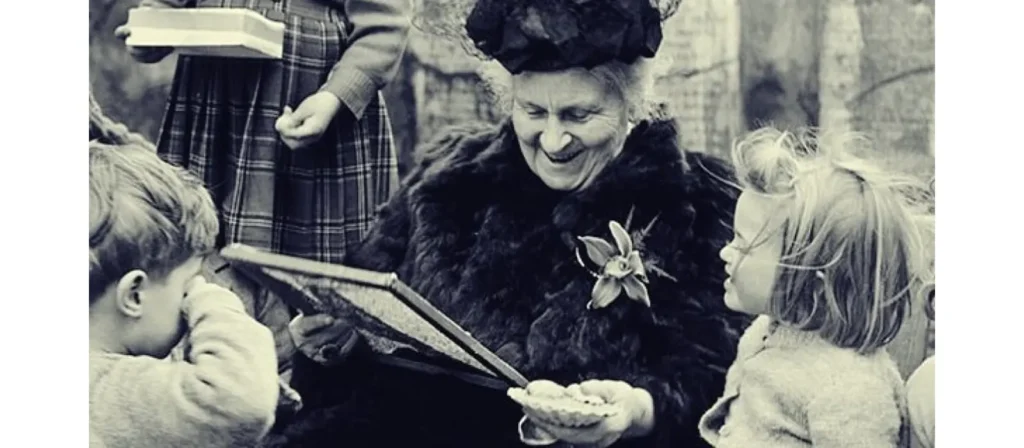
1. “The child is both a hope and a promise for mankind.” (Education and Peace, 1949)
Maria Montessori emphasizes that children embody the future of humanity. Educators are not only shaping individual learners but also influencing the direction of society and civilization. This Maria Montessori quote reminds teachers that their responsibility extends beyond the classroom. It is about nurturing potential, cultivating empathy, creativity, and responsibility, and preparing children to become the leaders and problem-solvers of tomorrow.
2. “Education is a natural process carried out by the child and is not acquired by listening to words but by experiences in the environment.” (The Absorbent Mind, 1949)
In this foundational statement, Montessori explains that learning occurs through active engagement with the environment rather than passive listening. Education is not something delivered to the child but something constructed from real experiences. The teacher’s role is to prepare an environment rich with opportunities for exploration, discovery, and practice. Through these experiences, children internalize knowledge in meaningful and lasting ways.
3. “Free the child’s potential, and you will transform him into the world.” (Education and Peace, 1949)
Education should aim to unlock the innate potential within every child. When given the freedom to explore and develop their abilities, children grow into individuals who can contribute creatively and positively to society. Empowering them with independence is the first step toward shaping future leaders and innovators.
4. “What the hand does, the mind remembers.” (The Absorbent Mind, 1949)
Montessori emphasized the intimate link between physical activity and mental development. When children manipulate materials and engage their hands in purposeful tasks, they deepen their understanding and memory. This insight supports the use of tactile, hands-on Materiali Montessori that connect movement with cognition.
5. “The child who concentrates is immensely happy.” (The Absorbent Mind, 1949)
Through careful observation, Montessori concluded that deep concentration is a source of profound joy for children. When they are absorbed in meaningful activity, they experience satisfaction, confidence, and inner balance. This state of focused engagement is not only a sign of learning but also of healthy psychological development. Teachers can support this process by offering purposeful tasks that invite sustained attention and self-directed discovery.
6. “The child has a mind able to absorb knowledge. He has the power to teach himself.” (The Absorbent Mind, 1949)
Montessori believed that children possess an extraordinary capacity for self-education during the early years. This concept, often called the “absorbent mind,” highlights their ability to internalize knowledge simply by interacting with their environment. Educators should trust this natural process and create rich, stimulating spaces where children can explore freely. Rather than trying to fill their minds, teachers should provide opportunities for discovery and self-construction.
7. “The child is truly a miraculous being, and this should be felt deeply by the educator.” (The Secret of Childhood, 1936)
Montessori saw children not as blank slates but as miraculous beings with inherent potential and dignity. This perspective transforms the teacher’s role from one of authority to one of reverence and respect. By recognizing the child’s unique capacity for growth and transformation, educators are more likely to approach their work with patience, curiosity, and deep responsibility.
8. “The things he sees are not just remembered; they form a part of his soul.” (The Absorbent Mind, 1949)
Montessori emphasized that early experiences do more than create memories — they shape the very foundation of a child’s personality, values, and worldview. This insight underscores the importance of intentionality in the environments we design for young learners. Every detail, from the tone of communication to the materials provided, becomes part of the child’s inner world and future self.
9. “Play is the work of the child.” (The Absorbent Mind, 1949)
For Montessori, play was not a distraction from learning but the essence of how children construct knowledge. Through purposeful activity, they develop problem-solving skills, motor abilities, social understanding, and emotional regulation. Recognizing play as serious, meaningful work encourages educators to design environments that offer freedom, challenge, and opportunities for exploration rather than passive entertainment.
10. “Imagination does not become great until human beings, given the courage and the strength, use it to create.” (To Educate the Human Potential, 1948)
Montessori believed that imagination was not mere fantasy but a powerful tool for learning and creation. When children are given real experiences and the freedom to explore, their imagination expands beyond pretend play into innovation and problem-solving. Teachers should nurture this creativity by offering open-ended materials and challenges that connect imagination with action.
11. “The environment must be rich in motives which lend interest to activity and invite the child to conduct his own experiences.” (The Absorbent Mind, 1949)
This Maria Montessori quote encapsulates the heart of the Montessori approach. A well-prepared environment naturally invites exploration and experimentation. Rather than forcing children to learn through instruction, the teacher carefully curates materials and spaces that motivate them to engage. Such environments spark curiosity and support self-directed discovery, leading to deeper and more lasting learning.
12. “To assist a child, we must provide him with an environment which will enable him to develop freely.” (The Secret of Childhood, 1936)
Montessori insists that sviluppo dei bambini cannot be forced but must be supported. Providing freedom within a structured and thoughtful environment allows them to unfold their potential at their own pace. The teacher’s role is not to lead every step but to remove barriers and offer conditions that support natural growth and learning.
13. “Growth comes from activity, not from intellectual understanding.” (The Absorbent Mind, 1949)
True learning happens when children are active participants in their own education. Intellectual explanations alone cannot replace hands-on engagement with materials and ideas. Montessori’s observation calls for classrooms that emphasize movement, manipulation, and real-world application. When children learn through doing, they integrate knowledge more deeply and meaningfully.
14. “The first essential for the child’s development is concentration. The child who concentrates is immensely happy.” (The Absorbent Mind, 1949)
Concentration is at the heart of a child’s growth. Montessori viewed focused attention as a sign of deep engagement and internal order. A classroom designed to minimize distractions and offer meaningful tasks allows children to practice concentration naturally. This ability becomes the foundation for all future learning, creativity, and self-discipline.
15. “The hands are the instruments of man’s intelligence.” (The Absorbent Mind, 1949)
Montessori observed that the development of the mind is inseparable from the use of the hands. Physical interaction with the environment builds neural connections, deepens understanding, and supports cognitive growth. This principle justifies the emphasis on hands-on materials in Montessori classrooms and aligns with modern research on embodied cognition.
16. “The child is both a spiritual and a physical being. Education must begin from birth.” (The Secret of Childhood, 1936)
Montessori viewed the child as a complete individual whose development involves both the body and the mind. Education is not confined to formal schooling but begins at birth through every interaction and experience. This perspective invites educators and parents to see learning as a continuous process that shapes the whole person from the very first days of life.
17. “The child’s mind is not merely receptive, it is creative.” (The Absorbent Mind, 1949)
Children do more than absorb information; they actively construct meaning from their experiences. Montessori believed that this creative quality enables children to shape their understanding of the world. The educator’s role is to offer opportunities for exploration and problem-solving so that creativity becomes a natural part of learning.
18. “A child’s work is to create the man he will become.” (The Absorbent Mind, 1949)
Montessori reminds us that childhood is not just preparation for adulthood; it is the very foundation of it. Every experience, choice, and activity contributes to the formation of personality and intellect. Teachers must therefore treat children’s work with respect and provide meaningful opportunities that support the development of the future self.
19. “The child builds his inmost self out of the deeply felt impressions he receives.” (The Secret of Childhood, 1936)
Children are profoundly shaped by their surroundings. Montessori believed that impressions from early experiences become part of the child’s inner world and influence their emotional and cognitive growth. Creating an environment filled with beauty, kindness, and purpose helps children internalize positive values and perspectives.
20. “A child who has become master of his acts through long and repeated exercises is a child filled with joy.” (The Montessori Method, 1912)
Mastery through repetition is a key element of Montessori learning. As children gain control over their movements and actions, they develop confidence and satisfaction. Repetition is not tedious but empowering because it builds competence and independence. This principle encourages teachers to provide opportunities for practice rather than rushing toward results.
Trasforma la tua aula con soluzioni di arredamento personalizzate
Maria Montessori Quotes on the Role of the Teacher
In Montessori education, the teacher is not the center of attention but the silent architect of the learning environment. Rather than dictating what and how children learn, the teacher observes, guides, and prepares conditions that allow curiosity and independence to flourish. The following Maria Montessori quotes illuminate her radical reimagining of the teacher’s role and the qualities essential for guiding children toward their fullest potential.
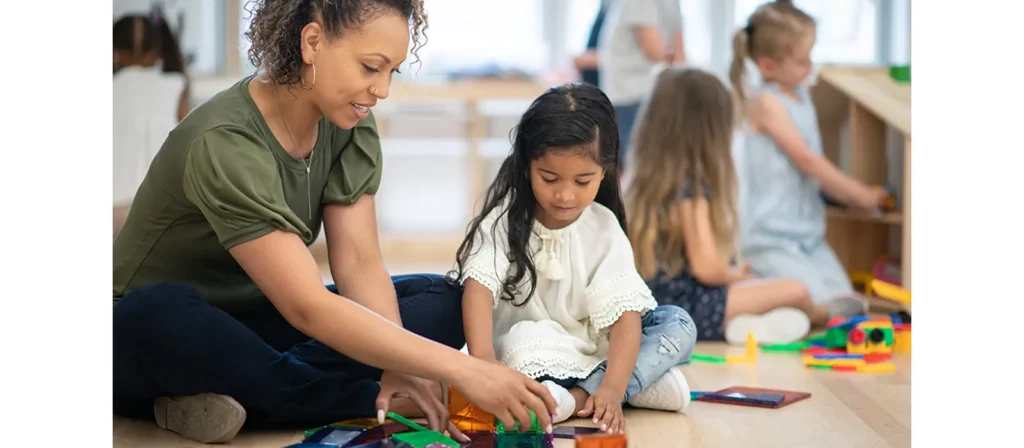
21. “The teacher must understand and feel her position of observer: the activity must lie in the phenomenon.” (The Montessori Method, 1912)
The teacher’s main responsibility is to observe without interrupting the child’s process of exploration and learning. By focusing on the child’s activity rather than their own interventions, educators gain insights into developmental patterns and learning styles. This informed observation leads to more intentional and effective support.
22. “It is not enough for the teacher to love the child. She must first love and understand the universe. She must prepare herself and truly work.” (The Absorbent Mind, 1949)
Montessori stresses that passion alone is insufficient for effective teaching. Educators must cultivate deep knowledge, self-awareness, and intellectual curiosity to inspire children. This preparation transforms the teacher into a model of lifelong learning, demonstrating the very qualities they wish to instill in their students.
23. “The teacher must give her lesson, plant the seed and then disappear; observing and waiting, but never interfering.” (The Absorbent Mind, 1949)
This Maria Montessori quote captures Montessori’s belief in minimal intervention. The teacher provides initial guidance and then steps back to let learning unfold. By resisting the urge to constantly correct or direct, educators empower children to take ownership of their learning and build confidence in their abilities.
24. “The teacher’s art lies in the ability to observe without interfering.” (The Absorbent Mind, 1949)
Teaching is as much about restraint as it is about instruction. Montessori calls observation an “art” because it requires sensitivity, patience, and timing. Effective educators know when to step in and when to remain silent, allowing children the space to experiment, make mistakes, and learn through their own experiences.
25. “The first duty of an education is to stir up life, but leave it free to develop.” (The Montessori Method, 1912)
Montessori’s vision of education is about awakening curiosity and potential rather than imposing structure. Teachers should spark interest, provide opportunities, and then trust children to explore and grow in their own way. This balance between inspiration and freedom is central to creating lifelong learners.
26. “We cannot make a genius. We can only give to each individual the chance to fulfill his potential possibilities.” (The Absorbent Mind, 1949)
Educators cannot create extraordinary individuals by force. Their role is to offer the environment and opportunities that allow each child to discover and develop their unique abilities. Independence is the foundation for this growth because it enables children to explore their interests and pursue their potential at their own pace.
27. “One test of the correctness of educational procedure is the happiness of the child.” (The Absorbent Mind, 1949)
Montessori believed that joy is a natural outcome of meaningful independence. When children are free to make choices and follow their interests, they display deep satisfaction and engagement. Happiness becomes a sign that the learning environment supports their growth and respects their individuality.
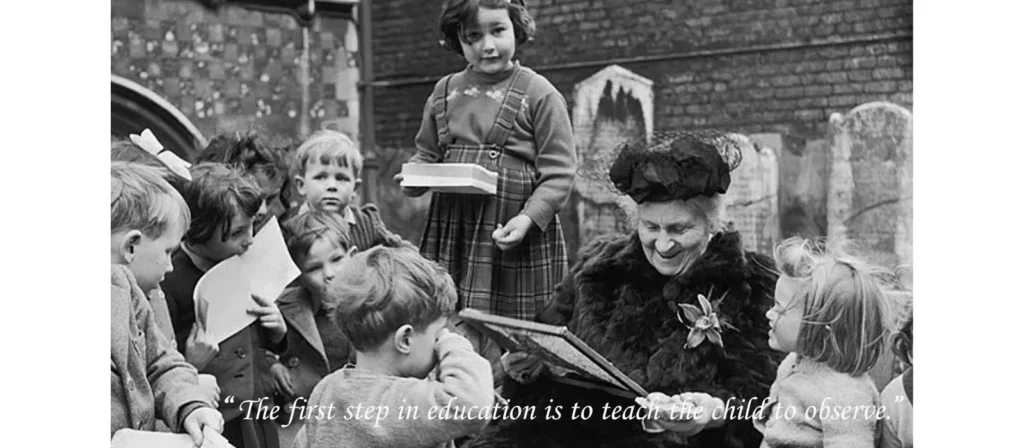
28. “The first step in education is to teach the child to observe.” (The Montessori Method, 1912)
Observation is the foundation of all learning. Montessori believed that when children learn to watch, listen, and notice details, they develop curiosity and understanding. The classroom should be designed to encourage careful observation, allowing children to connect what they see with what they know and discover patterns in the world around them.
29. “The teacher must derive not only the capacity but the desire to observe natural phenomena. In our system, she must become a passive, much more than an active, influence, and her passivity shall be composed of anxious scientific curiosity and of absolute respect for the phenomenon which she wishes to observe.” (The Montessori Method, 1912)
Montessori redefined the teacher’s role as that of an observer rather than a controller. Effective teaching requires patience, curiosity, and humility. By stepping back and watching children work, educators can understand their needs and developmental stages more accurately. This scientific approach to observation allows the teacher to offer support precisely when it is needed, without disrupting the child’s natural growth.
30. “The greatest sign of success for a teacher is to be able to say, ‘The children are now working as if I did not exist.’” (The Absorbent Mind, 1949)
Here, Montessori redefines educational success as the development of independence. The goal of teaching is not constant direction but the cultivation of learners who can guide their own growth. When children work with concentration, curiosity, and purpose without relying on adult intervention, it shows that they have developed intrinsic motivation and self-discipline. This Maria Montessori quote challenges teachers to empower rather than control.
31. “The teacher’s task is not to talk, but to prepare and arrange a series of motives for cultural activity in a special environment made for the child.” (The Absorbent Mind, 1949)
Montessori believed that teachers should focus less on delivering lectures and more on crafting meaningful experiences. A carefully prepared environment with engaging materials and activities acts as the silent teacher, inspiring children to explore and discover on their own. This shift from speaking to designing is what allows true self-directed learning to flourish.
32. “The teacher, when she begins to work in our schools, must have a kind of faith that the child will reveal himself through work.” (The Montessori Method, 1912)
Trust in the child’s innate potential is fundamental to Montessori’s pedagogy. The teacher must believe that, given the right environment and freedom, children will naturally demonstrate their abilities and interests. This faith prevents unnecessary interference and fosters an atmosphere of respect and patience, where children can unfold their personalities authentically.
33. “We teachers can only help the work going on, as servants wait upon a master.” (The Absorbent Mind, 1949)
In this powerful metaphor, Montessori positions the teacher as a servant to the child’s development. Rather than imposing knowledge, the educator’s role is to support and assist the natural process already occurring within the child. This requires humility, attentiveness, and a willingness to adapt instruction to the learner’s needs.
34. “An ordinary teacher cannot be transformed into a Montessori teacher, but must be created anew, having rid herself of pedagogical prejudices.” (Education for a New World, 1946)
Montessori argued that teaching in her method requires a complete shift in mindset. Traditional methods must be set aside so the teacher can adopt a new perspective based on observation, respect, and trust in the child’s natural development.
35. “The teacher must derive not only the capacity but the desire to observe natural phenomena.” (The Montessori Method, 1912)
Observation is central to Montessori education. Teachers must not only learn how to observe but also develop a genuine passion for watching how children learn and grow. This careful observation informs every decision they make in guiding the educational process.
Maria Montessori Quotes on Freedom and Independence
Freedom lies at the heart of Montessori’s educational philosophy. She believed that children grow into capable, responsible, and creative individuals only when they are free to make choices, solve problems, and direct their own actions. The educational quotes by Maria Montessori in this section explore how independence empowers children to become active participants in their own development and how liberty, properly supported, leads to self-discipline, confidence, and lifelong learning.
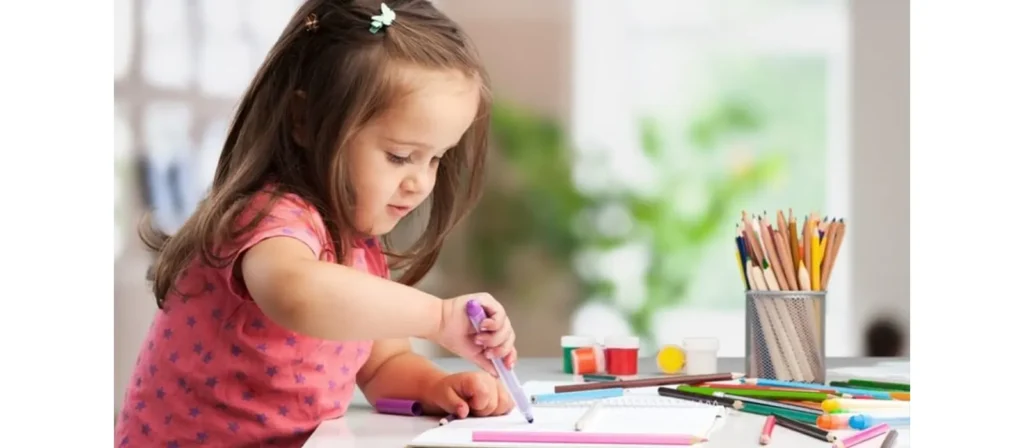
36. “Never help a child with a task at which he feels he can succeed.” (The Absorbent Mind, 1949)
Montessori encourages educators to trust the child’s ability to solve problems independently. When adults intervene too quickly, they take away the chance for children to develop persistence and confidence. Allowing them to attempt tasks on their own builds self-esteem and teaches them that they are capable of overcoming challenges through their own effort.
37. “The child’s development follows a path of successive stages of independence.” (The Absorbent Mind, 1949)
Independence is not a single achievement but a gradual process that unfolds step by step. Montessori observed that each developmental phase builds on the previous one, leading from physical autonomy to intellectual and social independence. Teachers can support this progression by offering opportunities that match the child’s evolving abilities and readiness.
38. “Discipline must come through liberty.” (The Montessori Method, 1912)
Interpretation:
True discipline is not imposed from outside but developed from within. Montessori teaches that children learn self-control and responsibility when they are free to make choices and experience their consequences. Through freedom, they begin to regulate their actions and understand the importance of thoughtful decision-making.
39. “The liberty of the child should have as its limit the collective interest.” (The Montessori Method, 1912)
Freedom in Montessori education exists within a framework of social responsibility. Children are free to act as they wish as long as their behavior does not harm others or disrupt the community. This approach helps them understand that independence carries with it a duty to consider the well-being of those around them.
Trasforma la tua aula con soluzioni di arredamento personalizzate
40. “The child who has become master of his acts through long and repeated exercises, and who has been encouraged by the pleasant and interesting activities in which he has been engaged, is a child filled with health and joy and remarkable for his calmness and discipline.” (The Montessori Method, 1912)
Mastery develops through repetition and meaningful activity. As children gain control over their actions, they become more confident, peaceful, and self-disciplined. The process of achieving independence also strengthens emotional well-being, resulting in balanced and resilient individuals.
41. “The essence of independence is to be able to do something for oneself.” (The Montessori Method, 1912)
For Montessori, independence is about the ability to act without relying on others. Simple tasks such as dressing, cleaning, or solving a problem build confidence and self-belief. These everyday achievements give children a sense of competence and help them develop a strong sense of identity.
42. “No one can be free unless he is independent.” (The Montessori Method, 1912)
Freedom is meaningless without the capacity to act independently. Montessori believed that education must provide children with the skills, confidence, and decision-making abilities that allow them to use their freedom wisely. Independence empowers them to participate actively and responsibly in the world.
43. “We must allow the child to do for himself, to believe in himself, and to overcome his difficulties.” (The Secret of Childhood, 1936)
Montessori believed that education should empower children to face challenges with confidence. When they are trusted to solve problems independently, they develop resilience and self-belief. Teachers should resist solving every difficulty for the child and instead offer support that helps them grow through their own efforts.
44. “The child must have liberty to understand and grow.” (The Montessori Method, 1912)
Liberty is essential to intellectual and emotional development. Children need the freedom to question, explore, and experiment in order to build real understanding. An environment that encourages choice and autonomy fosters deep learning and a lifelong love of discovery.
45. “To give a child liberty is not to abandon him to himself.” (The Montessori Method, 1912)
Freedom does not mean leaving children without guidance or support. Montessori believed that liberty must exist within a structured environment where clear expectations and boundaries are present. Such an environment provides safety and purpose while still encouraging exploration and decision-making. Children thrive when they are free to act independently but know that their actions exist within a framework of respect and responsibility.
Maria Montessori Quotes on Education and Society
Montessori’s vision of education extends far beyond the classroom. She saw education as the most powerful force for shaping the future of humanity. Children, she believed, are the architects of a new civilization, and education must prepare them to engage thoughtfully with the world and its challenges. The following Maria Montessori quotes reflect her deep commitment to the social mission of education, showing how nurturing the potential within each child can transform societies and move humanity toward a more harmonious and sustainable future.
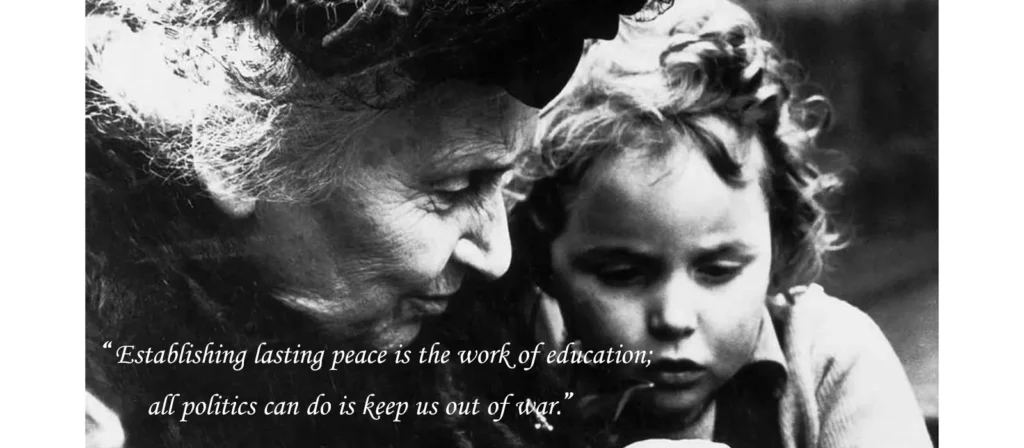
46. “Establishing lasting peace is the work of education; all politics can do is keep us out of war.” (Education and Peace, 1949)
Montessori believed that the ultimate purpose of education is to create a foundation for peace. Politics may prevent conflict temporarily, but only education can address the deeper causes of division. By nurturing understanding, compassion, and cooperation in children, educators help build a world that values peace over power. This vision elevates the teaching profession to one of global significance.
47. “If help and salvation are to come, they can only come from the children, for the children are the makers of men.” (Education and Peace, 1949)
Montessori places enormous trust in the power of the child to shape the future. Adults cannot repair society alone; they must prepare children to become thoughtful, compassionate leaders. Education is the tool that enables this transformation by nurturing intellectual ability and moral awareness. Through children, humanity continually renews itself and evolves toward a more peaceful and just world.
48. “The education of even a small child does not aim at preparing him for school, but for life.” (Education and Peace, 1949)
For Montessori, the purpose of education extends far beyond academic achievement. It is about equipping children with the skills, attitudes, and values they need to navigate life and contribute to society. This broader mission involves fostering independence, responsibility, and social awareness from an early age. Schools must therefore prepare children not just to pass exams but to engage meaningfully with the world around them.
49. “We must study the child, for the child is the builder of humanity.” (Education and Peace, 1949)
Montessori urges educators and policymakers to see childhood as the foundation of civilization. Every adult carries the imprint of their early experiences, which means the way we raise and educate children shapes the character of society. By understanding how children develop, we can create systems that support their growth and, in turn, nurture a more compassionate and intelligent humanity. The child’s role in social evolution is both profound and essential.
50. “The greatest triumph of education is not knowledge but action.” (The Formation of Man, 1949)
Education should inspire individuals to use what they know for the betterment of the world. Montessori believed that learning is incomplete if it does not lead to meaningful contributions to society. Schools must therefore cultivate initiative, courage, and a sense of responsibility alongside intellectual growth. True education prepares people not only to understand the world but also to improve it.
51. “Education is the best weapon for peace.” (Education and Peace, 1949)
Montessori saw education as humanity’s most powerful tool for building a peaceful future. Knowledge alone is not enough; education must teach empathy, understanding, and respect for diversity. These qualities help individuals resolve conflicts peacefully and build inclusive societies. Through education, we plant the seeds of a future where collaboration replaces conflict and justice replaces inequality.
52. “We shall walk together on this path of life, for all things are part of the universe, and we are connected with each other to form one whole unity.” (To Educate the Human Potential, 1948)
Montessori believed that education must help children understand their place in the universe and their connection to all forms of life. This awareness fosters a sense of responsibility and belonging that extends beyond the self. When children learn that everything in existence is interdependent, they develop respect for both nature and humanity. Such understanding lays the foundation for global cooperation and peaceful coexistence.
53. “The land is where our roots are. The children must be taught to feel and live in harmony with the Earth.” (From Childhood to Adolescence, 1948)
Montessori’s educational philosophy included a profound respect for nature and the environment. She believed that children must learn to see themselves as stewards of the Earth, not its conquerors. This ecological consciousness is essential for building a sustainable future and shaping responsible citizens. Education should therefore include direct experiences with nature, helping children develop care and reverence for the planet.
54. “The stars, earth, stones, life and everything else must be felt as a single whole.” (To Educate the Human Potential, 1948)
Montessori viewed the universe as an interconnected system in which everything has meaning and purpose. Teaching children to see this unity nurtures a holistic worldview that values diversity and interdependence. It also encourages humility and curiosity, reminding learners that they are part of a vast, evolving story. Education should inspire awe for the cosmos while cultivating a sense of duty toward it.
55. “When the child goes out, it is the world itself that offers itself to him. Let us take the child out to show him real things instead of making objects which represent ideas and realities.” (From Childhood to Adolescence, 1948)
Montessori emphasized that real-world experience is essential for connecting education with society. Abstract instruction alone cannot prepare children for meaningful participation in the world. By engaging directly with their environment, they develop a deeper understanding of culture, nature, and human relationships. This experiential learning builds critical thinking and social awareness, both of which are essential for active citizenship.
56. “The needs of mankind must become the central point of education.” (To Educate the Human Potential, 1948)
Montessori believed that education must respond to the evolving challenges of humanity. Schools should not only transmit knowledge but also cultivate the skills and values needed to address global issues such as inequality, environmental degradation, and conflict. By aligning education with the needs of society, we ensure that learning remains relevant and transformative. This approach prepares children to be agents of change rather than passive recipients of tradition.
57. “Man does not live by himself alone. He is part of a vast society and must learn to live in harmony with others.” (The Formation of Man, 1949)
For Montessori, education is deeply social. It must teach children how to collaborate, empathize, and contribute to a shared human project. Recognizing the collective dimension of existence helps individuals balance personal ambition with social responsibility. Education that fosters these qualities builds stronger communities and a more cohesive global society.
58. “The world of education is like that of agriculture. A plant needs to be carefully tended, but it grows by itself.” (The Absorbent Mind, 1949)
This metaphor illustrates Montessori’s view of education as a natural process guided, but not controlled, by human hands. Just as a gardener prepares the soil but cannot force the seed to grow, educators create conditions for learning without dictating outcomes. Society, too, flourishes when its members are nurtured rather than constrained. This perspective invites patience, humility, and faith in the slow but powerful growth of human potential.
Scopri la nostra gamma completa di prodotti
Accedi al nostro catalogo completo con mobili e attrezzature da gioco di alta qualità per asili e scuole.
FAQs About Maria Montessori Quotes
- Why are Maria Montessori quotes still relevant today?
Maria Montessori’s insights remain powerful because they focus on essential aspects of human development. Her words emphasize independence, curiosity, and the importance of respecting each child’s individuality, which continue to guide educators and parents worldwide. - Who was Maria Montessori, and why is she influential?
Maria Montessori was an Italian physician and educator born in 1870. She was one of the first women to graduate from medical school in Italy and became internationally known for creating the Montessori Method of education. Her approach emphasizes independence, hands-on learning, and respect for each child’s natural development. Her work has shaped modern early childhood education around the world and continues to inspire parents and teachers today. - Are all the Maria Montessori quotes used in classrooms taken directly from her books?
Not all quotes are exact excerpts from her original writings. Some are paraphrased interpretations inspired by her philosophy. For accuracy, it is best to consult her original texts, such as The Absorbent Mind E The Secret of Childhood. - How can I incorporate Maria Montessori quotes into my classroom or parenting style?
You can display Maria Montessori quotes on walls, include them in parent newsletters, or reflect on one each week as part of a mindful teaching practice. Sharing these quotes with children (in age-appropriate language) can also help instill values like responsibility, respect, and curiosity. - Which books contain Maria Montessori quotes?
Her most quoted works include The Absorbent Mind, The Secret of Childhood, The Discovery of the Child, and Education for a New World. These books capture her core educational beliefs and are excellent sources for authentic quotes. - How do Maria Montessori quotes support teachers in their work?
Maria Montessori quotes remind teachers of their role as careful observers and gentle guides. Her insights encourage educators to trust in the child’s natural ability to learn and to create environments that nurture independence and joy in discovery.
Conclusione
Educational quotes by Maria Montessori continue to guide and inspire because they reveal deep truths about how humans grow and learn. They show us that education is more than a transfer of knowledge. It is a process that builds character, nurtures potential, and prepares individuals to contribute meaningfully to the world. Her philosophy encourages us to trust in the child’s natural ability to explore and to view education as a journey of self-discovery.
As we absorb Montessori’s timeless insights, we are reminded that each child carries within them the capacity to shape the future. Our responsibility is to nurture that potential with care, respect, and faith. When education is guided by these principles, it becomes a powerful force for building a better, more peaceful, and more connected world.

